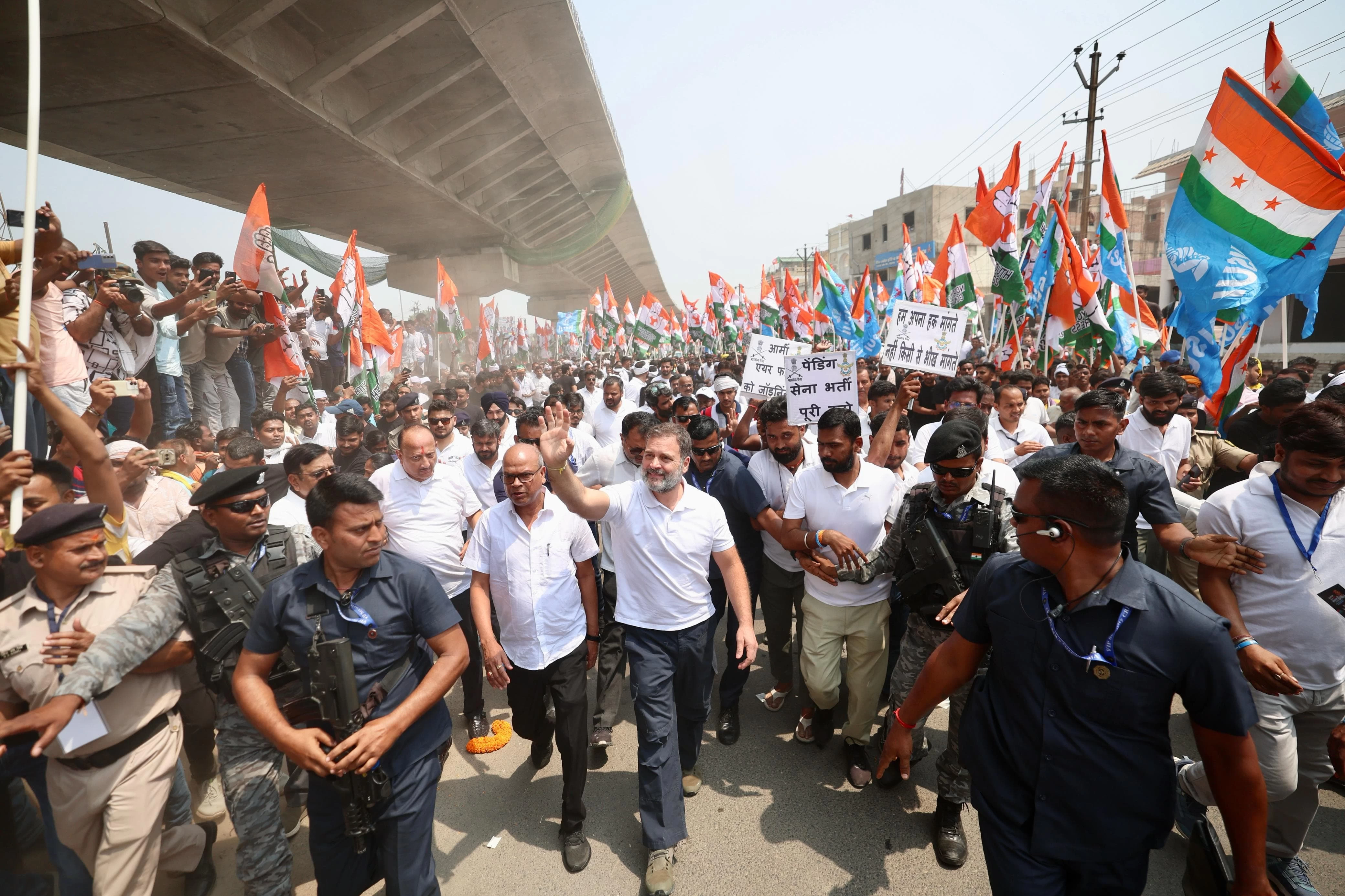Latest Updates
Global Meltdown Hits Dalal Street: Sensex Crashes 3,300, Nifty below 21,800 Points Amid Recession Fears

In a chaotic start to the week, Indian stock markets plunged into the red on Monday, echoing the global panic that has gripped investors following fresh trade tensions triggered by the United States. As trading opened, the Sensex crashed a staggering 3,939.68 points, slipping to 71,425.01, while the Nifty fell 1,160.8 points to 21,743.65 — marking one of the steepest single-day declines in recent times.
Behind this financial meltdown lies a brewing storm overseas. On Friday, U.S. President Donald Trump announced a sweeping wave of retaliatory tariffs targeting over 180 countries. The move, seen as a declaration of trade war, has already triggered backlash from major economies including China and European nations. With global economic relationships now under severe strain, fears of a recession — especially in the U.S. — are growing rapidly.
That fear rippled across continents and reached Dalal Street with full force. By the end of trading on Monday, both Sensex and Nifty had tanked over 3%. The broader Nifty 50 pack saw a sea of red, with the exception of Hindustan Unilever and Zomato. Metal stocks bore the brunt, with names like Tata Steel, Trent, and JSW Steel leading the declines.
Market volatility reached alarming levels, reflected in a 66% spike in India VIX, the volatility index often referred to as the ‘fear gauge’. Such a jump signals deep anxiety about what lies ahead for markets already on edge.
V K Vijayakumar, Chief Investment Strategist at Geojit Financial Services said, “Globally markets are going through heightened volatility caused by extreme uncertainty. No one has a clue about how this turbulence caused by Trump tariffs will evolve. Wait and watch would be the best strategy in this turbulent phase of the market. There are a few things that investors should keep in mind. One, the irrational Trump tariffs will not continue for long. Two, India is relatively better placed since India's exports to the US as a percentage of GDP is only around 2 percent and therefore the impact on India's growth will not be significant. Three, India is negotiating a Bilateral Trade Agreement with the US and this is likely to be successful resulting in lower tariffs for India. Domestic consumption themes like financials, aviation, hotels, select autos, cement, defence and digital platform companies are likely to come out relatively unscathed from the ongoing crisis. Trump is unlikely to impose tariffs on pharmaceuticals since he is on the back foot now and, therefore, this segment is likely to show resilience.”
Adding to the gloom, Goldman Sachs raised its U.S. recession probability from 35% to 45%, citing inflationary pressures and weakening growth. If the bulk of Trump’s April 9 tariffs are enforced, the firm warns, a recession could be imminent.
Asian markets reflected similar distress. Japan’s Nikkei 225 nosedived 7.8%, wiping out months of gains and taking it back to 2023 levels. South Korea and Australia were not spared either, plunging 5% and 6% respectively. In the West, the rout continued with European markets falling sharply — Germany’s DAX was down 9.4%, and the Stoxx 600 slipped 5.3%. Meanwhile, Wall Street ended last week in crisis mode — the S&P 500 dropped 6%, the Dow fell 5.5%, and the tech-heavy Nasdaq sank nearly 5.8%.
Back home, every sector felt the tremors. Nifty Metal crumbled by over 6%, while Nifty IT and Auto fell between 4–5%. Analysts believe the worst may not be over yet, especially if global trade friction intensifies and recession indicators solidify.









.webp)